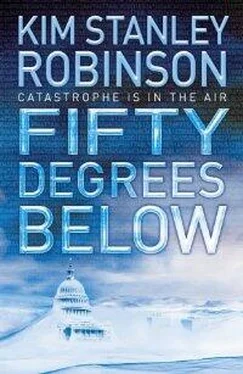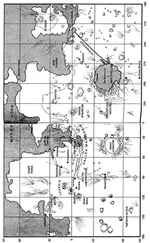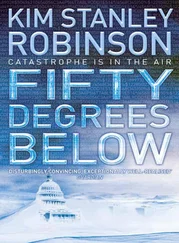Bert and May didn’t have that problem.
The swimming tigers were flaked out in their enclosure, lying like any other cats in the sun. Tigers were not monogamous. They were in effect solitaries, who went their own way and crossed paths only to mate. Moms kicked out their cubs after a couple of years, and all went off on their own.
These two, however, had been thrown together, as if by fate. Swept out to sea in the same flood, rescued by the same ship, kept in the same enclosures. Now the male rested his big head on the female’s back. He licked her fur from time to time, then plopped his chin on her spine again.
Maybe there was a different way of coming to love. Spend a lot of time with a fellow traveler; get to know them across a large range of behaviors; then have that knowledge ripen into love.
The swimming tigers looked content. At peace. No primate ever looked that peaceful. Nick and Frank went to get snow cones. Frank always got lime; Nick got a mix of root beer, cherry, and banana.
The Khembali house stayed very busy. With a significant percentage of Khembalung’s population cycling through it, occupying every closet and stairwell while waiting for openings in other refugia being established, the place jumped with a sense of crammed life that to Frank often felt surreal. Sometimes it was so obvious that a whole town had moved into a single house, as in some reality TV show. Sometimes as he sat in the corner of the big kitchen, peeling potatoes or drying dishes, he would look at all the industrious faces, cheerful or harried as they might be, and think: This is almost entertaining. Other times the tumult would get to him and his train of thought would leave the room and return to the forest in his mind. It was dark in that particular parcellation, dark and quiet, no, not quiet—the sound of the wind in the trees was always there—but solitary. The leaves and the stars and the creek were peaceful company.
“People are so crazy,” he would say to Rudra Cakrin at the end of the night as he sprawled on his mattress.
“Ha ha.”
Some nights he stayed late at work, working on the list or talking on the phone to a contact Diane had in Moscow, a Dmitri, who worked in the Kremlin’s environmental resources ministry. Late at night in D.C. it was midday in Moscow, and Frank could call and try to find out more about the Russians’ carbon capture plans. Dmitri’s English was excellent. He claimed that no decisions had been made about interventions of any kind. They were very happy to see the North Atlantic project under way.
After these conversations Frank sometimes just slept there on his couch, as he had planned to back at the beginning. It was entirely comfortable, but Frank found he missed his conversations with Rudra Cakrin. There was no other part of the day that held as many surprises for him. Even talking to Diane or Dmitri wasn’t as surprising, and the two Ds were getting pretty surprising. Sometimes Frank found himself a little bit jealous; she and Dmitri were old friends, and Frank could hear Diane’s voice take on the quality it had when she was talking to someone close to her; also the tone of one great power speaking to another. Dmitri had carte blanche to experiment with one-sixth of the land surface of the Earth. That was power; there were bound to be surprises there.
Even so, Rudra was more surprising. One night Frank was lying on his groundpad in the light of the dimmed laptop, trying to tell Rudra about the impact the old man’s lecture at NSF had had on him. When he asked about the particular sentence that had acted on him like a sort of catalyst—“An excess of reason is itself a form of madness”—Rudra snorted.
“Milarepa say that because his guru beat him all the time, and always a good reason for it. So Milarepa never think much of reason. But that is an easy thing to notice. And hardly anyone ever reason anyway.”
“Yes, I’ve noticed that.” Frank described to the old man what had happened to him subsequent to the lecture containing that remark, explaining what he could of his ideas about zen koans or paradigm busters, and how they caused actual physical changes in the brain, leading to new systems of parcellation that reorganized both unconscious thought and the way consciousness perceived the world. “Then on the way to the Quiblers I got stuck with a woman in an elevator, I’ll tell you about that some other time…”
“Dakini!” Rudra said, eyes gleaming.
“Maybe,” Frank said, googling the word, some kind of female Tantric spirit, “anyway it convinced me that I had to stay in DC, and yet I had put a resignation letter in Diane’s in-box that was kind of harsh. So I decided I had to get it out, and the only way to do it was to break into the building through the skylight and go into her office through the window.”
“Good idea,” Rudra said. For the first time it occurred to Frank that when Rudra said this he might not always mean it. An ironic oracle: another surprise.
Another time Rudra knocked his water glass over and said “ Karmapa!” shortly.
“Karmapa, what’s that, like three jewels?”
“Yes. Name of founder of Karma Kagyu sect.”
“So, like saying Christ or something.”
“Yes.”
“You Buddhists are pretty mellow with the curses, I guess that makes sense. It’s all like Heavens to Betsy!”
Rudra grinned. “ Gyakpa zo!”
“What’s that one.”
“Eat shit.”
“Whoah, okay then! Pretty good.”
“What about you, what you say?”
“Oh, we say cat shit also, although it’s pretty harsh. Then, like ‘God damn you’ or whatever…”
“Means maker of universe? Condemn to hellworld?”
“Yeah, I guess that’s right.”
“Pretty harsh!”
“Yes,” laughing, “and that’s one of the mild ones.”
Another night, shockingly warm, the house stuffy and murmurous, creaking under the weight of its load, Frank complained, “Couldn’t we move out to the garden shed or something?”
“Garden shed?” Rudra said, holding up his hands to make a box.
“Yes, the little building out back. Maybe we could move out there.”
“I like that.”
Frank was surprised again. “It would be cold.”
“Cold,” Rudra said scornfully. “No cold.”
“Well. Maybe not for you. Or else you haven’t been outside lately at night. It was as cold as I’ve ever felt it, back in February.”
“Cold,” Rudra said, dismissing the idea. “Test for oracle, to see if Dorje truly visits him, one spends night naked by river with many wet sheets. Wear sheets through the night, see how many one can dry.”
“Your body heat would dry out a wet sheet?”
“Seven in one night.”
“Okay, well, let’s ask about the shed then. Spring is here, and I need to move outdoors.”
“Good idea.”
Frank added that to his list of Things To Do, and when the house mother, a kind of sirdari in the Sherpa style, got time to look at the shed with him, she was quick to approve and make the arrangements. She wanted their closet to house two elderly nuns who had just arrived, the oldest one looking frail.
The shed was dilapidated in the extreme. It stood in the back corner of the lot under a big tree, and the leaf fall had destroyed the shingles. Frank swept off some of the mulch and tarped over the roof, with a promise to it to make proper repairs in the summer. Inside its one room they moved two old single beds, a bridge table with a lamp, two chairs, and a space heater.
Immediately Frank felt better.
“Nice to lose things,” Rudra commented.
Frank quoted the Emersonfortheday: “One is rich in proportion to the things one doesn’t need.”
Читать дальше
Конец ознакомительного отрывка
Купить книгу












